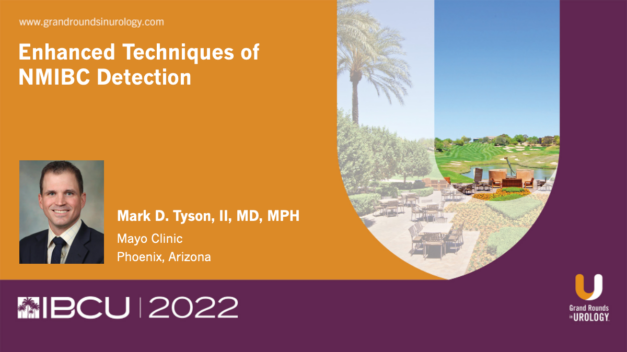Neoadjuvant or Adjuvant Therapy?
Parminder Singh, MD, Assistant Professor of Hematology and Oncology at Mayo Clinic in Phoenix, Arizona, discusses the future of care for muscle-invasive bladder cancer (MIBC) in this 14-minute talk. Two large trials–one SWOG trial from 2003 evaluating methotrexate, vinblastine, doxorubicin, and cisplatin (MVAC) prior to cystectomy, and an international trial reporting on cisplatin, methotrexate, and vinblastine (CMV) prior to cystectomy or radiation–both famously showed improved survival in MIBC patients. Because of this data, neoadjuvant chemotherapy (NAC) became the gold standard for care. Since then, research in this area has focused on fine-tuning drug options and patient selection under the NAC framework, such as evaluating MVAC versus gemcitabine and cisplatin (GC), options for cisplatin-ineligible patients, and how pathological responses to NAC affect survival. However, Singh suggests this space of MIBC management is ready to move into a new chapter due to antibody-drug conjugates. The current data about these emerging drugs is promising. There is evidence that patients who priorly did not respond to chemotherapy had improvements in overall survival with enfortumab vedotin (EV). Currently, there is a mock trial comparing EV, pembrolizumab, and GC in cisplatin ineligible patients at the Mayo Clinic. Singh is optimistic EV and pembrolizumab may be able to replace cisplatin for those who are ineligible in the future.
Read More



